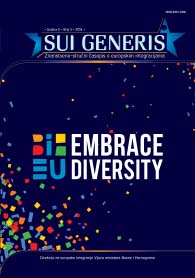Škole ekonomskog mišljenja i ekonomska politika zemalja u tranziciji
Schools of economic thought and economic policy in transition countries
Author(s): Željko MarićSubject(s): Economy, EU-Approach / EU-Accession / EU-Development
Published by: Direkcija za evropske integracije Vijeća ministara Bosne i Hercegovine
Keywords: Mercantilism; Keynesianism; monetarism; institutionalism; supply economics; transition countries; European Union;
Summary/Abstract: There is no commonly accepted school of economic thought which would serve best for all countries. The best school for each individual country depends on its economic situation and institutional environment (economic, political, legal...) at national and international level, and other specific conditions. This paper provides an overview of the most important schools (Keynesianism, monetarism...) that were used in the past and proposes a synthesis according to the characteristics of the Western Balkans, for their efficient process of economic integration in the EU. Countries in transition face with several limitations in applying the measures of certain schools, as was the past practice, given that circumstances in a globalized world have changed significantly. Free movement of capital and huge openness of the economies imposes restrictions, especially for monetary policy. Economic autonomy of the transition countries is shrinking and multinational corporations are becoming the most important subjects. This paper analyses inconsistencies in the application of neoliberal model of development in transition countries, as well as the measures of individual schools that would be appropriate for transition countries under the conditions of globalization. The hypothesis of the paper is: the neoliberal concept of economic development is not appropriate for the Western Balkans, since it does not allow the achievement of international competitiveness, necessary for integration into the EU common market. The following scientific methods will be applied: historical method, comparative method, analysis and synthesis, inductive-deductive method, generalization and specialization, abstraction and concretization, methods of proofing.
Journal: Sui generis
- Issue Year: 2018
- Issue No: 5
- Page Range: 113-130
- Page Count: 18
- Language: Bosnian

